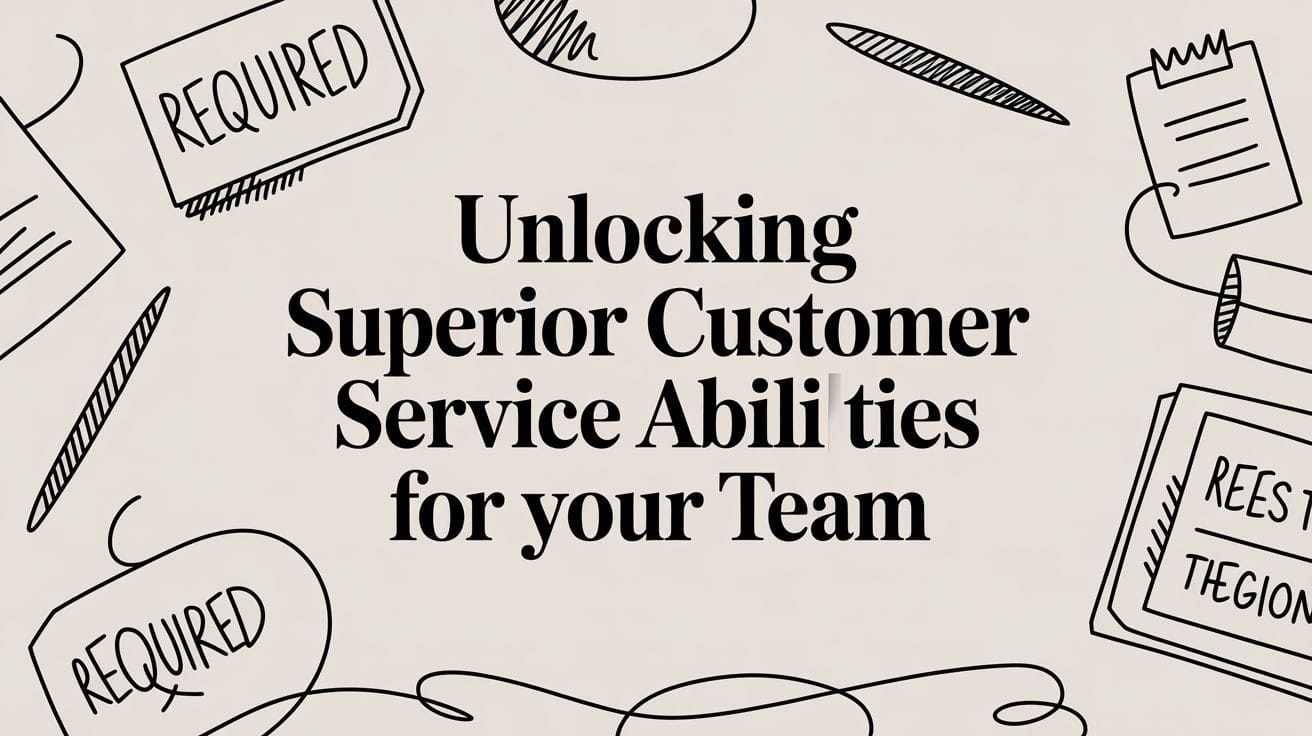In today's competitive business landscape, outstanding customer service is not merely a nice-to-have; it is a strategic imperative. Companies that excel in this area don't just satisfy customers—they cultivate loyalty and turn clients into brand advocates. Mastering customer service requires a blend of skills, strategy, and continuous improvement. This article explores key strategies to enhance customer service, leading to greater customer satisfaction and business success.
Understanding Customer Needs
Listening Actively
Active listening is the foundation of exceptional customer service. By truly understanding customer needs and concerns, businesses can tailor their responses and provide effective solutions. Encourage your team to listen without interrupting, ask clarifying questions, and restate the customer’s points to ensure comprehension.
Gathering Feedback
Regularly soliciting customer feedback through surveys, interviews, or suggestion boxes offers invaluable insights into customer expectations and experiences. Use this feedback to identify common issues and areas for improvement, leading to better service delivery.

Investing in Employee Training
Empowering Your Team
Ensure your customer service representatives are well-equipped with the knowledge and skills they need to serve clients effectively. Training should cover both product knowledge and soft skills, such as empathy, problem-solving, and communication. Empowered employees are more likely to take ownership of customer interactions, leading to positive outcomes.
Rewarding Excellent Service
Recognize and reward employees who go above and beyond to deliver outstanding service. Implementing recognition programs not only boosts morale but also encourages a culture of excellence that benefits both employees and customers alike.
Embracing Technology
Utilizing Customer Relationship Management (CRM) Systems
A robust CRM system helps streamline customer interactions by centralizing information and automating processes. This technology enables service teams to access customer histories quickly, allowing for more personalized and efficient service.
Implementing AI and Chatbots
Artificial intelligence and chatbots can significantly enhance customer service by handling routine inquiries and providing 24/7 support. This not only improves response times but also allows human agents to focus on more complex issues requiring personal attention.
Building a Customer-Centric Culture
Aligning Organizational Goals
Make customer satisfaction a core objective across all departments. From marketing to product development, aligning goals ensures that every aspect of the company contributes to a seamless customer experience.
Encouraging Customer Engagement
Encourage engagement by creating platforms for customers to interact with your brand and with each other. Social media, forums, and community events are excellent ways to build a sense of community and strengthen customer relationships.
FAQs
What is the most important skill in customer service ?
Empathy is often considered the most critical skill in customer service, as it enables representatives to understand and relate to the customer's feelings and perspective.
How can technology improve customer service ?
Technology, such as CRM systems and AI, can streamline processes, provide faster responses, and personalize interactions by giving customer service representatives the tools they need to access and manage customer information efficiently.
What is the role of feedback in customer service ?
Feedback plays a crucial role by highlighting strengths and areas for improvement in service delivery, guiding the development of strategies to enhance customer satisfaction and loyalty.
How do you measure customer satisfaction ?
Customer satisfaction can be measured through surveys, Net Promoter Scores (NPS), customer retention rates, and analysis of feedback to assess how well customer needs and expectations are being met.
What are the benefits of a customer-centric culture ?
A customer-centric culture ensures that every action and decision in the company prioritizes the customer's needs, leading to increased satisfaction, loyalty, and positive word-of-mouth marketing.








